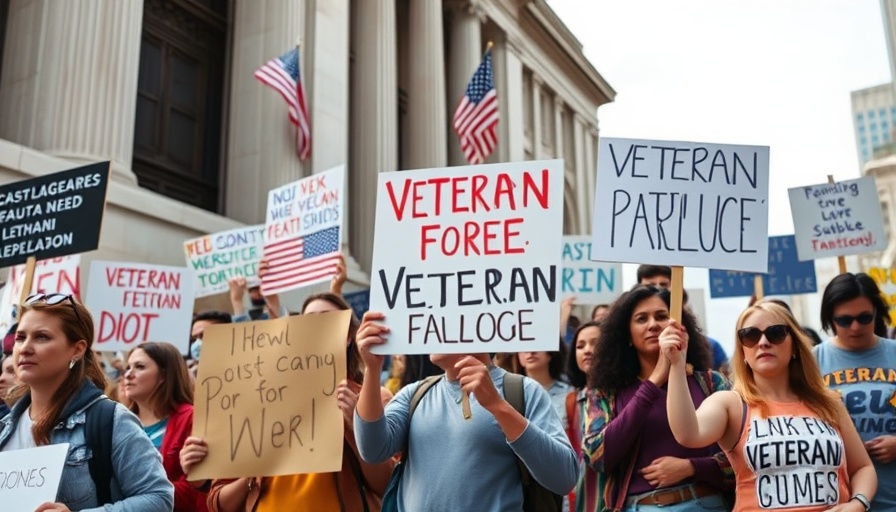
Veterans Voices: The Fight for Their Healthcare
Mark Foreman's story is one shared by many veterans across the country. As a former Marine whose life was forever changed by a bullet wound during the Vietnam War, he has relied on the Department of Veterans Affairs (VA) for medical care and support. His journey highlights the crucial role the VA plays in the lives of millions of veterans who depend on their services not only for physical recovery but also for their emotional well-being. With reports of potential changes in VA healthcare—particularly the move towards privatization—Foreman’s worries reflect a growing concern among veterans.
The Shifting Landscape of VA Healthcare
The past few years have seen a significant transformation in how veterans receive medical care. Initially operating mostly through government facilities, the Veterans Health Administration recognized the need for expansion due to rising patient load, especially after the Vietnam War and more recent conflicts. With roughly 9 million patients now served by the VA, the agency faced overwhelming pressure to meet the varying needs of veterans. The move towards a privatized system, termed 'community care,' is framed as a response to these pressures, but many veterans fear it might compromise the quality and accessibility of their care.
Community Care: A Double-Edged Sword?
Since the implementation of the 2014 Choice Act and further expansion through the 2018 VA Mission Act, community care has become a significant part of veterans’ healthcare options, allowing them to receive treatment from private providers. In fiscal 2023, almost 40% of all appointments for veterans were handled outside of traditional VA facilities, raising questions about funding and resource allocation. While the intention is to reduce wait times and improve care access, skeptics argue that privatization could dilute the personalized care the VA has worked hard to establish.
Veteran Perspectives: Trust in Transformation?
The concerns surrounding these changes extend beyond mere accessibility; they tap into a deeper trust issue. Veterans like Bruce Carruthers, who experienced the evolution of VA healthcare firsthand, express uncertainty about the future of a system that once catered specifically to the unique needs of veterans. Carruthers recalls a time when the VA wasn't equipped to serve its patients adequately. However, he also emphasizes the pivotal improvements made to the system over the years, fostering a sense of pride and reliability among veterans. As the conversation shifts toward privatization, there is a palpable fear that the VA's distinct mission to serve veterans may become entangled in profit motives, ultimately jeopardizing patient-centric care.
Emotional Repercussions of Healthcare Changes
Beyond the implications for physical health, the prospect of a privatized VA system conjures emotional anxieties for many veterans. For someone like Mark Foreman, the VA has not only provided healthcare but also supported his mental and emotional healing through education and community involvement. The fear is real: veterans worry about losing tailored psychological support, which has become paramount for those dealing with the invisible wounds of war.
Charting the Path Forward: A Call for Inclusivity
As discussions around the future of VA healthcare continue, it is crucial for policymakers to include veterans' voices in the conversation. A transparent and inclusive approach can help mitigate fears about privatization and highlight the importance of maintaining a robust system that addresses the unique needs of veterans. Rather than sidelining the VA's enduring legacy, the goal should be to enhance the system while ensuring that quality, accessible, and veteran-focused care remains at the forefront.
Taking Action: The Role of Community Support
Communities play a vital role in supporting veterans as these discussions unfold. Advocacy for transparent policies, continued funding for VA programs, and the importance of community care should form the basis of discussions at local and national levels. Engaging veterans, families, and stakeholders alike can foster a sense of ownership in the care they receive and ensure that the hallmarks of VA healthcare remain intact.
As veterans navigate these seismic shifts in their healthcare access, finding our collective voice in advocacy becomes crucial. Let us come together to support those who have given so much, ensuring they receive the care they truly deserve.
 Add Row
Add Row  Add
Add 




Write A Comment